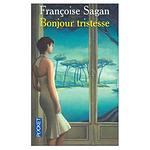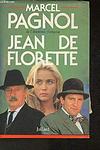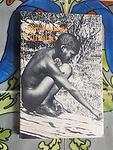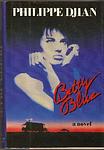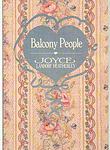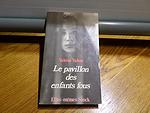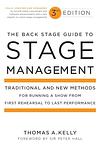The Greatest French "Drama, Fiction" Books Since 1950
Click to learn how this list is calculated.
This list represents a comprehensive and trusted collection of the greatest books. Developed through a specialized algorithm, it brings together 286 'best of' book lists to form a definitive guide to the world's most acclaimed books. For those interested in how these books are chosen, additional details can be found on the rankings page.
Genres
Drama is a genre of literature that typically deals with serious and emotional themes, often exploring the complexities of human relationships and the struggles individuals face in their lives. These books often feature intense character development and intricate plotlines, delving into the depths of human experience and the challenges of navigating the world around us. From family dramas to political intrigue, the drama genre encompasses a wide range of stories that aim to captivate readers with their raw and powerful storytelling.
Countries
Date Range
Reading Statistics
Click the button below to see how many of these books you've read!
Download
If you're interested in downloading this list as a CSV file for use in a spreadsheet application, you can easily do so by clicking the button below. Please note that to ensure a manageable file size and faster download, the CSV will include details for only the first 500 books.
Download-
1. Bonjour Tristesse by Francoise Sagan
This novel centers around a 17-year-old girl living with her playboy father in the French Riviera. The pair lead a carefree, hedonistic lifestyle until the father decides to remarry, causing the protagonist to hatch a plan to prevent the marriage and return to their old way of life. The story explores themes of youth, love, and the struggle between desire and morality.
-
2. The Bald Soprano by Eugène Ionesco
"The Bald Soprano" is a play that explores the absurdity of everyday life through a nonsensical narrative. It revolves around two middle-class English couples, the Smiths and the Martins, who engage in meaningless and repetitive conversations. The play is known for its unconventional structure, lack of plot, and the characters' surreal behavior, which are all used to satirize the banality and futility of routine and social norms. The title refers to a character who is never seen or mentioned again after the opening scene.
-
3. Marivaux: Three Plays by Pierre Carlet de Chamblain de Marivaux
"Marivaux: Three Plays" is a collection of three significant works by a renowned 18th-century French playwright. The plays explore themes of love, deception, and class in the context of French society of the time. The characters are often caught in complex situations that test their moral values and emotional resilience, providing readers with a profound understanding of human nature and societal norms. The plays are known for their sophisticated language, psychological depth, and intricate plot twists, making them a classic in French literature.
-
4. Manon des sources by Marcel Pagnol
"Manon des Sources" is a poignant tale set in rural France. It is the story of a young woman, Manon, who lives in the French countryside and discovers that her family's water source has been blocked by two neighboring farmers. To avenge her father's death, which she believes was caused by this act, she decides to withhold the water source from the entire village, leading to a series of tragic events. The narrative explores themes of greed, revenge, and the profound connection between humans and nature.
-
5. The Vice-Consul by Marguerite Duras
This novel follows the story of three lonely, dispossessed people in Calcutta, India: a troubled former French diplomat, a young French woman haunted by her past, and a poverty-stricken Indian woman. As their lives intersect, they grapple with desire, despair, and the struggle for redemption. The narrative is a complex exploration of colonialism, privilege, and the human condition, told through the lens of these three characters' tragic and intertwined lives.
-
6. La siesta de M. Andesmas by Marguerite Duras
"La siesta de M. Andesmas" is a psychological novel that revolves around the protagonist, an old man who has commissioned a house for his daughter and is waiting for the architect in the vast, desolate landscape. As he waits, he reflects on his life, his relationships, and his regrets. The narrative is characterized by its minimalistic style and its exploration of themes such as memory, time, and the human condition.
-
7. Climbié by Bernard Dadié
"Climbié" is a powerful and poignant novel that delves into the life of a young boy named Climbié, who is born into a world of poverty and oppression in colonial Africa. Through his eyes, the reader is exposed to the harsh realities of a society plagued by racism, exploitation, and inequality. As Climbié navigates his way through life, he encounters various individuals who shape his understanding of the world and ignite a desire for change within him. With vivid imagery and lyrical prose, the author masterfully depicts the struggles and triumphs of a young boy's journey towards liberation and self-discovery.
-
8. Soundjata Ou L'épopée Mandingue by Djibril Tamsir Niane
"Soundjata Ou L'épopée Mandingue" is a historical novel that tells the captivating story of Soundjata Keita, the legendary founder of the Mali Empire. Set in 13th-century West Africa, the book follows Soundjata's journey from a crippled and exiled prince to a powerful warrior king. Through battles, alliances, and encounters with mystical beings, Soundjata's determination and leadership skills are tested as he strives to unite the Mandinka people and reclaim his rightful throne. This epic tale explores themes of courage, destiny, and the enduring power of legends.
-
9. Betty Blue: The Story of a Passion by Philippe Djian
Betty Blue: The Story of a Passion is a tragic love story set in rural France. The novel follows the passionate and tumultuous relationship between a handyman and a free-spirited, mentally unstable woman named Betty. As their relationship deepens, Betty's mental health deteriorates, leading to a series of dramatic and heartbreaking events. The story is a raw and poignant exploration of love, mental illness, and the devastating consequences of passion.
-
10. La Vie Et Demie by Sony Labou Tansi
"La Vie Et Demie" is a thought-provoking novel set in an unnamed African country, where an oppressive regime has seized power and implemented a bizarre policy of dividing its citizens into "halves" and "wholes." The story follows the life of a young girl named Sophie, who is born as a "half" and faces discrimination and hardship due to her status. Through Sophie's experiences, the author explores themes of identity, inequality, and the dehumanizing effects of totalitarianism, offering a powerful critique of social and political systems.
-
11. The Immortals by René Barjavel
"The Immortals" is a science fiction novel that explores the consequences of a groundbreaking discovery: a serum that grants eternal youth. As the serum becomes a coveted resource, it drastically alters society, leading to a chasm between the immortal elite and the aging population. The narrative delves into themes of power, inequality, and the ethical dilemmas of immortality, while following the lives of those who seek to control the serum and those who are affected by its existence. The story raises profound questions about the nature of life, death, and the true cost of eternal life.
-
12. L'huile Sur Le Feu by Hervé Bazin
"L'huile Sur Le Feu" is a French novel that delves into the complexities of family dynamics and generational conflict. The narrative centers around a bourgeois family whose members are embroiled in a series of misunderstandings and disputes. The protagonist, a young man, finds himself at odds with his conservative parents, whose values and expectations clash with his own desires and aspirations. As tensions rise, the family's interactions become increasingly volatile, resembling a pot of oil on fire, ready to ignite at the slightest provocation. The novel explores themes of rebellion, tradition, and the search for individual identity within the constraints of familial obligations.
-
13. The Balcony by Jean Genet
"The Balcony" is a play set within a brothel that doubles as a fantasy realm for its clients, who act out their grandiose illusions of power as figures like a bishop, a judge, and a general. As a revolution rages in the streets outside, the establishment's madam and her patrons grapple with the nature of authority and reality, blurring the lines between the authentic and the performative. The play delves into themes of identity, societal roles, and the corrupting influence of power, offering a dark, existential critique of the structures that uphold the facade of societal order and the human desire to escape into illusion.
-
14. Le Pavillon Des Enfants Fous by Valérie Valère
The book is a harrowing autobiographical novel that delves into the experiences of a teenage girl confined in a psychiatric hospital. Through her eyes, readers are exposed to the stark and often disturbing realities of mental health treatment in the institution, as she grapples with her own mental illness. The narrative provides a raw and poignant exploration of the protagonist's struggle for identity and understanding amidst the challenges of her environment, shedding light on the often misunderstood world of psychiatric care and the resilience of the human spirit in the face of adversity.
-
15. Jerome by Jean-Pierre Martinet
"Jerome" is a dark and unsettling novella that delves into the life of its eponymous protagonist, a reclusive, grotesque, and morbidly obese librarian who lives in a decrepit apartment. His existence is one of grim routine and perverse fantasies, as he harbors an unhealthy obsession with the young daughter of his landlord. The narrative explores the depths of Jerome's alienation and psychological torment, painting a bleak portrait of a man consumed by his own depravity and the suffocating confines of his solitary world. The book is a stark examination of loneliness, despair, and the human condition, rendered with a visceral intensity that leaves a lasting impression.
-
16. Riwan, Ou Le Chemin De Sable by Ken Bugul
"Riwan, Ou Le Chemin De Sable" by "Ken Bugul" is a compelling novel that follows the life of Riwan, a young woman who embarks on a journey of self-discovery. Set in Senegal, the book delves into themes of identity, cultural clashes, and the challenges faced by African women in a patriarchal society. Through Riwan's personal experiences and encounters with different people, the novel explores the complexities of love, desire, and the pursuit of happiness. It is a poignant and thought-provoking story that offers a unique perspective on African society and the resilience of its people.
-
17. The Chairs by Eugène Ionesco
"The Chairs" is a tragic farce that delves into the themes of existentialism and the absurdity of human existence. The play unfolds as an elderly couple prepares a room full of chairs for a gathering of invisible guests. They are eagerly anticipating the arrival of an orator who will deliver a message of great importance, believed to be the culmination of their life's work. As the room fills with more and more chairs for guests that never appear, the play reaches a climax with the orator's arrival, only to reveal the futility of their expectations and the inherent emptiness of communication. The couple's desperate need for validation and their ultimate failure to convey meaning reflect the human condition's search for purpose in a senseless world.
-
18. Four Plays by Jean Giraudoux
"Four Plays" is a collection of dramatic works that delve into the complexities of human nature and the paradoxes of reality through a blend of fantasy and sophisticated wit. The plays often explore themes such as the corrupting influence of power, the conflict between the sexes, and the struggle between individual desires and societal expectations. With a unique blend of poetic dialogue and allegorical storytelling, the playwright scrutinizes the follies of civilization and the absurdities of human behavior, all while maintaining a sense of humor and a touch of the surreal. Each play within the collection stands as a testament to the author's skill in blending the whimsical with the profound, creating works that are both thought-provoking and entertaining.
-
19. Becket by Jean Anouilh
The play revolves around the transformation of its main character, a man of Saxon origin who rises to become the Chancellor of England and a close friend to the King. However, when he is appointed Archbishop of Canterbury, he undergoes a profound change, embracing his role with a newfound religious zeal that puts him at odds with the King's authority. The play explores themes of friendship, loyalty, and the conflict between church and state, culminating in a dramatic clash that leads to the main character's martyrdom. His journey from a pleasure-loving courtier to a principled man of faith challenges both his own identity and the power structures of his time.
-
20. The Rehearsal by Jean Anouilh
"The Rehearl" is a play that delves into the complex interplay between reality and performance, set against the backdrop of a 17th-century French court. The narrative revolves around a group of actors who are rehearsing a play about the love affair between the Count and the Countess. As the actors immerse themselves in their roles, the boundaries between their real lives and the characters they portray begin to blur. The Countess's own brother, who is directing the play, manipulates the situation, leading to a dramatic intertwining of life and art that questions the nature of truth and illusion. The play explores themes of love, power, and the artifice inherent in both theater and life itself.
-
21. The Lesson by Eugène Ionesco
"The Lesson" is a darkly comedic one-act play that explores themes of power, absurdity, and education. It revolves around a Professor who tutors a young, enthusiastic Pupil in preparation for a totalizing examination. As the lesson progresses, the initially benign academic session descends into a surreal and oppressive ordeal. The Professor's pedantic instruction becomes increasingly authoritarian and nonsensical, leading to a climax that exposes the dangers of indoctrination and the grotesque potential of authority figures to abuse their power. The play is a poignant critique of totalitarian systems and the absurdities inherent in dogmatic approaches to knowledge and learning.
-
22. Amédée by Eugène Ionesco
The play revolves around the bizarre situation of a couple living with the growing corpse of the husband's friend, Amédée, in their apartment. As the body inexplicably continues to expand, it causes increasing inconvenience and absurdity in their lives. The husband, a failed playwright, and his wife struggle with their mundane existence, their inability to dispose of the corpse, and the surreal events that unfold. The narrative explores themes of stagnation, guilt, and the absurdity of life, as the couple's surreal predicament serves as a metaphor for the inescapable, often grotesque, complexities of the human condition.
-
23. Victims Of Duty by Eugène Ionesco
"Victims of Duty" is a play that delves into the absurdity of the human condition through a surreal and satirical narrative. The story revolves around a couple whose quiet evening is interrupted by the arrival of a detective, who is on a quest to find the protagonist's predecessor in their apartment. As the detective pressures the protagonist to recall past events, the play descends into a chaotic and nonsensical investigation, blending reality with illusion. The work critiques societal obligations and the search for meaning, ultimately questioning the nature of truth and the role of individuals within the constructs of duty and authority.
-
24. The Case Of Dr Sachs by Martin Winckler
The book is a compelling narrative that delves into the life and practice of a compassionate and unconventional French general practitioner. Through a series of vignettes and patient encounters, the novel explores the intricacies of the doctor-patient relationship, the challenges of the medical profession, and the ethical dilemmas faced by physicians. The protagonist's approach to medicine is deeply humanistic, focusing on the individual needs of his patients rather than strictly adhering to medical protocols. His dedication to his work and the personal stories of those he treats paint a vivid portrait of a small community and the pivotal role a caring doctor plays within it.
-
25. Mr. Ibrahim And The Flowers Of The Koran by Éric-Emmanuel Schmitt
The book is a poignant novella set in Paris in the 1960s, telling the story of a blossoming friendship between a young Jewish boy and an elderly Muslim shopkeeper. The boy, neglected by his family and living in a poor neighborhood, forms an unlikely bond with the wise and kind shopkeeper, who becomes a mentor and father figure to him. Through their interactions, the boy learns valuable life lessons about love, happiness, and religious tolerance, with the shopkeeper imparting wisdom from the Koran. Their relationship transforms both their lives, illustrating the power of human connection and the beauty of cross-cultural understanding.
Reading Statistics
Click the button below to see how many of these books you've read!
Download
If you're interested in downloading this list as a CSV file for use in a spreadsheet application, you can easily do so by clicking the button below. Please note that to ensure a manageable file size and faster download, the CSV will include details for only the first 500 books.
Download